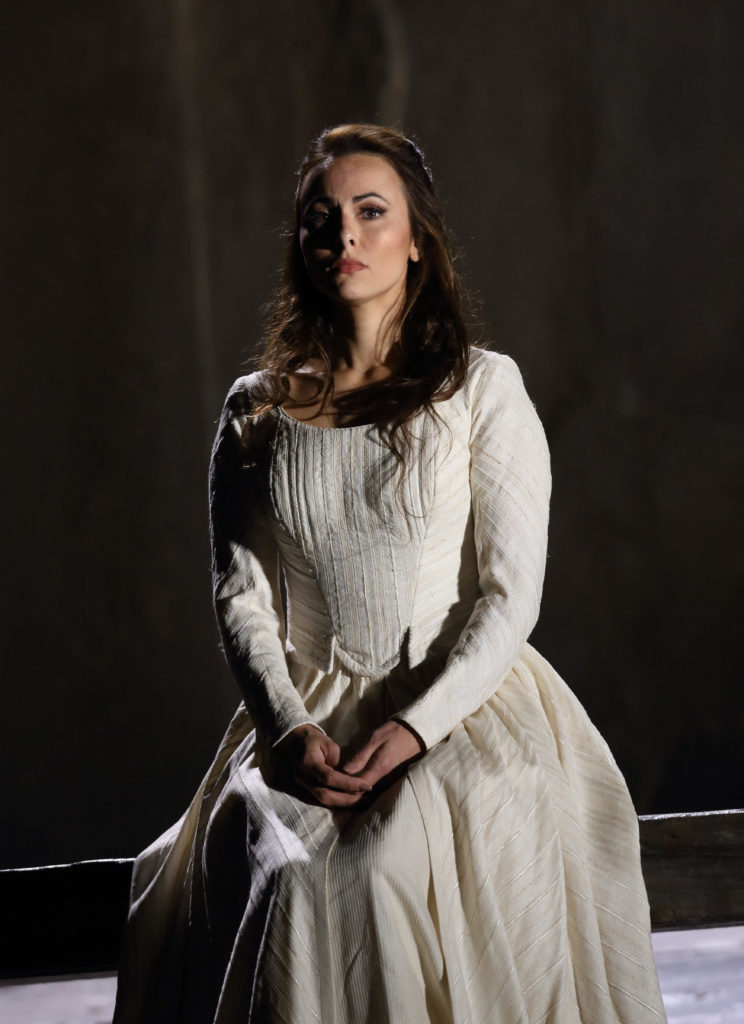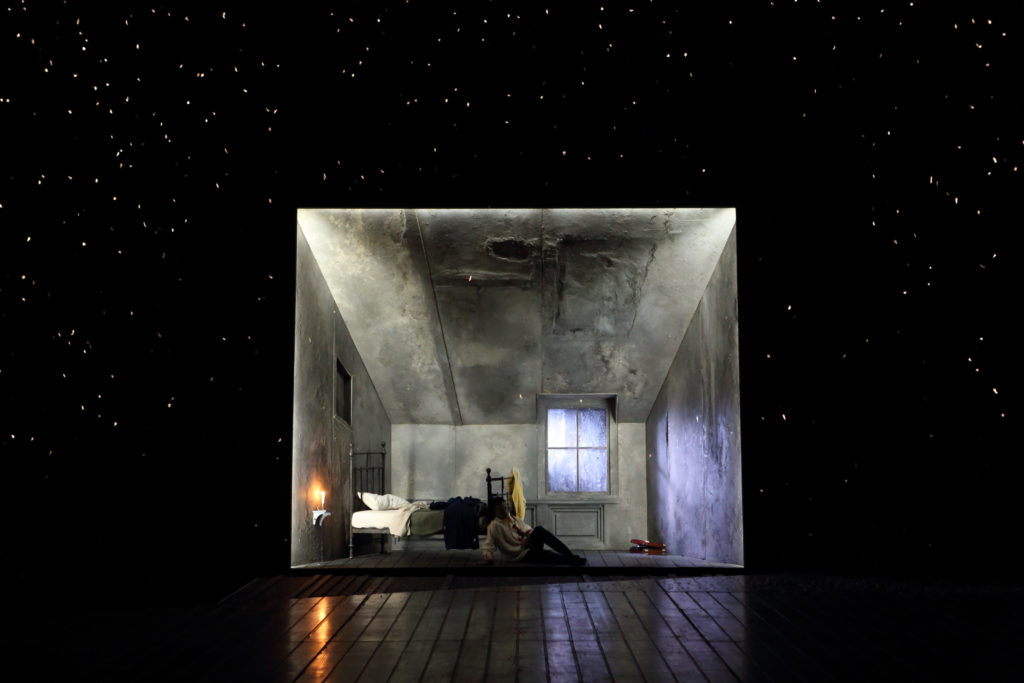
Isabel Leonard as Charlotte, in Werther. Photographed by Catherine Ashmore
Review of Werther
by Leslie Jones
Werther, drame lyrique in four acts, music by Jules Massenet, libretto by Édouard Blau, Paul Milliet and George Hartmann, after Goethe’s novel Die Leiden des Jungen Werthers, orchestra of the Royal Opera House conducted by Edward Gardner, directed by Benoît Jacquot, third revival of the 2004 production, Royal Opera House, Friday 20th September 2019.
“Why must everything pass away?”, muses Charlotte, the eldest daughter of the Mayor of a small German town, who is still in mourning for her mother. For the newly arrived Werther, a “young man of independent means”, however, everything “seems like paradise”. Yet the shadow of death hangs over the beauty of nature that he extolls and belies the joys of the Bailli’s family life that he fondly observes.
The libretto provides some welcome comic relief – the episodes in which the Bailli’s children rehearse Christmas carols in October, and Schmidt and Johann sing drunken odes to Bacchus, spring to mind. Massenet’s skilful score, at times reminiscent of his friend George Bizet’s Symphony in C, provides the perfect platform for the gamut of emotions run by the ill-fated couple, Charlotte and Werther. Werther idealises Charlotte and declares his love for her. But she is a slave to duty, having promised her mother that she would marry Albert (Jacques Imbrailo).
“God grants us happiness”, declares Charlotte’s younger sister Sophie (the engaging Heather Engebretson), full of the joys of life. But now that Charlotte has married Albert, Werther believes that his “suffering will never end”. Charlotte primly recommends the benefits of prayer and suggests that he find another woman.
Heldentenor Juan Diego Flórez, as Werther, replete with obligatory blue frock coat, black waistcoat and trousers, took time to get into his stride but he excelled in the passage in which Goethe’s semi-autobiographical hero ruminates about suicide. Just as a child is greeted by his father when he returns home early from a journey (a compelling metaphor for life and untimely death), Werther maintains that God will forgive and welcome him.
In the final act, first scene, Charlotte is alone in her claustrophobic marital home, a veritable Doll’s House, complete with pistols. All is evidently not well, judging from her body language. “Poor Charlotte, married to someone she does not love” (Richard Langham Smith, ‘An Opera Apart’, Official Programme). Mezzo-soprano Isabel Leonard, in this most demanding role, gave the stand out performance. Her beautiful voice was effortlessly projected. “There, let my tears flow”, she movingly remarked, on reading Werther’s letters. Her manifold regrets and fragile religious faith were exquisitely suggested. She realises too late that the only truth is love.
In the pictorial final scene, set in Werther’s garret, the production team pulled out the stops. Snow is falling. Werther has shot himself with one of the aforementioned pistols. The dying man and Charlotte are finally re-united and redeemed and have their fleeting moment of happiness. Love transcends death, as in Tristan und Isolde. Indicatively, Massenet attended the Ring Cycle at Beyrouth in 1886 (see ‘An Opera Apart’). From start to finish, a truly memorable evening.

Juan Diego Florez as Werther. Photographed by Catherine Ashmore










